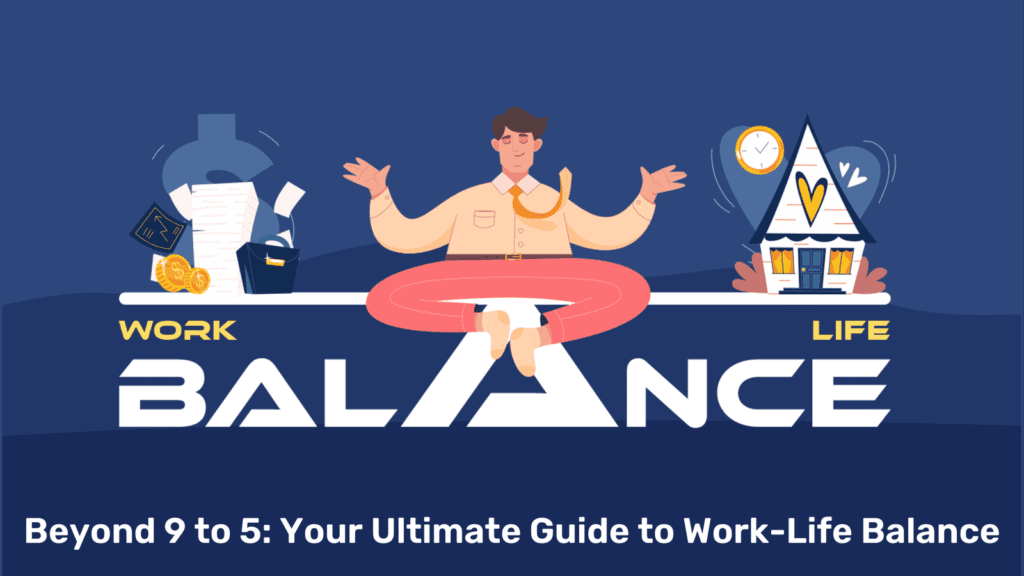The Ultimate Guide to a Balanced Lifestyle
In today’s fast-paced world, achieving a balanced lifestyle can feel like an impossible task. Between work commitments, family responsibilities, social events, and self-care, it’s easy to feel overwhelmed. However, balance is not about doing everything perfectly; it’s about making conscious choices that align with your well-being. In this ultimate guide, we’ll explore practical ways to create a harmonious lifestyle that promotes health, happiness, and personal growth.

1. Understanding What Balance Means
A balanced lifestyle means different things to different people. For some, it might involve maintaining a perfect work-life balance, while for others, it could mean dedicating time to self-care and personal development. The key is to define what balance looks like for you and prioritize aspects of life that contribute to your overall well-being.
Key Aspects of a Balanced Lifestyle:
-
Physical health – Exercise, nutrition, and proper rest.
-
Mental well-being – Managing stress, mindfulness, and self-care.
-
Work-life harmony – Finding fulfillment in both professional and personal life.
-
Relationships – Nurturing meaningful connections with family and friends.
-
Personal growth – Learning new skills and setting goals for self-improvement.
2. Prioritizing Physical Health
A strong foundation for a balanced lifestyle starts with taking care of your body. Good health allows you to be more productive, feel energized, and enjoy life to the fullest.
Exercise Regularly
Physical activity is not just about staying in shape—it’s essential for mental clarity, stress reduction, and overall well-being. Aim for at least 30 minutes of moderate exercise most days of the week. Activities like walking, yoga, dancing, or strength training can make a significant impact on your health.
Eat a Nutrient-Rich Diet
Your diet plays a crucial role in maintaining a balanced lifestyle. Focus on whole foods such as:
✅ Fruits and vegetables for vitamins and antioxidants.
✅ Lean proteins like fish, chicken, tofu, and legumes.
✅ Whole grains such as brown rice, quinoa, and whole wheat.
✅ Healthy fats from nuts, seeds, and olive oil.
Prioritize Rest and Sleep
Lack of sleep affects your mood, energy levels, and decision-making abilities. Strive for 7-9 hours of quality sleep each night to rejuvenate your body and mind. Establishing a bedtime routine and avoiding screens before bed can improve sleep quality.
3. Mental Well-Being and Stress Management
Maintaining mental balance is just as important as physical health. Stress and anxiety can take a toll on your well-being, so it’s essential to incorporate strategies to keep your mind at ease.
Practice Mindfulness and Meditation
Mindfulness helps you stay present and reduces stress. A few simple techniques include:
-
Deep breathing exercises
-
Guided meditation
-
Practicing gratitude
-
Journaling your thoughts
Take Breaks and Unplug
Spending too much time on screens or constantly working can lead to burnout. Take regular breaks, spend time in nature, and engage in activities that bring you joy, such as reading, painting, or playing music.
Seek Support When Needed
If stress or anxiety becomes overwhelming, don’t hesitate to seek help from a therapist or counselor. Talking to someone can provide clarity and support in challenging times.
4. Achieving Work-Life Balance
A balanced lifestyle involves managing your professional and personal life effectively. Many people struggle with overworking and neglecting personal time, leading to stress and dissatisfaction.
Set Boundaries
-
Establish clear work hours and avoid bringing work home.
-
Learn to say “no” to unnecessary commitments that drain your energy.
-
Take regular vacations or breaks to recharge.
Stay Organized and Manage Your Time Wisely
-
Use a planner or digital tools to schedule tasks and priorities.
-
Break down large projects into smaller, manageable steps.
-
Avoid procrastination and focus on high-priority tasks first.
Make Time for Hobbies and Socializing
All work and no play can lead to burnout. Allocate time for hobbies, spending time with loved ones, and activities that make you happy. Whether it’s a weekend getaway, a movie night, or a creative project, personal time is essential for overall well-being.
5. Nurturing Relationships and Social Connections
Healthy relationships contribute significantly to a balanced lifestyle. Meaningful connections with family, friends, and even colleagues can improve happiness and provide a strong support system.
Strengthen Personal Relationships
-
Communicate openly – Express your thoughts and feelings honestly.
-
Be present – Put away distractions and actively listen to others.
-
Show appreciation – Small gestures of gratitude strengthen bonds.
Surround Yourself with Positivity
Choose to be around people who uplift and inspire you. Toxic relationships can drain your energy and impact your well-being, so it’s important to set healthy boundaries.
6. Personal Growth and Self-Improvement
A truly balanced life includes continuous learning and self-improvement. Expanding your knowledge, skills, and experiences helps you stay motivated and fulfilled.
Lifelong Learning
-
Read books, take online courses, or attend workshops.
-
Learn new hobbies or skills that interest you.
-
Stay curious and embrace new experiences.
Set Meaningful Goals
-
Identify short-term and long-term goals for personal and professional growth.
-
Break goals into smaller, actionable steps.
-
Stay committed and celebrate achievements along the way.
Practice Gratitude and Positivity
Focusing on what you’re grateful for can shift your mindset toward happiness and contentment. Start a gratitude journal or simply reflect on three things you’re thankful for each day.

Conclusion: Striving for Balance is a Journey
Achieving a balanced lifestyle is an ongoing process that requires conscious effort and self-awareness. It’s not about perfection but rather about making small, intentional choices that align with your well-being. By focusing on physical health, mental wellness, work-life balance, relationships, and personal growth, you can create a life that feels fulfilling and harmonious.
Remember, balance looks different for everyone. Listen to your body, set your own priorities, and make adjustments as needed. With time and consistency, you’ll discover a lifestyle that brings you happiness, peace, and success.


Leave a Reply